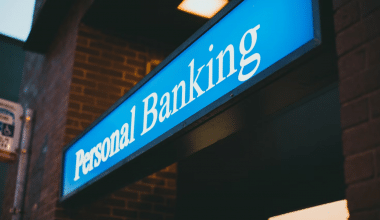You’ve probably wondered how to get a business credit card, whether you’re a freelancer or have your own start-up, especially if you’re just starting out and don’t have any business credit yet. Although there are some variations between corporate and personal credit cards, the application process is comparable. This guide will tell you all you should do if you’re trying to get a business credit card, for either a startup, with EIN only, or no revenue at all. Let’s get to it!
What are Business Credit Cards?
While you do not have to own a business to obtain one, business credit cards are credit cards that are specifically designed for business owners and those with business costs. This business credit card is intended to be used for company purchases rather than personal purchases and can range from minimal expenses for your side hustle to funding your startup idea.
The rewards program for business credit cards frequently reflects this goal. They may provide additional benefits and bonus points for business-related purchases such as printing services, office supplies, and advertising expenses. Some companies also provide bonuses for food and travel, which are popular business purchases.
Do Business Credit Cards Affect Your Personal Credit?
Business credit cards may not always appear on your personal credit report. Instead, they are recorded on your company’s credit history. This means they will have no effect on your particular credit score.
Some credit card companies do not report corporate credit card activity to consumer credit bureaus, while others do. This implies that their corporate credit cards will have the same effect on your credit score as any other credit card. Unless your account is substantially late, most other issuers will not consider your company activities to influence your personal credit score.
Benefits of Business Credit Cards
Business credit cards are the credit card industry’s undiscovered jewel. Here are some of my favorite business credit card perks and features.
#1. Bigger sign-up bonuses
Many corporate credit cards provide sign-up bonuses that are equal to or much larger than those offered by personal credit cards.
#2. Lower annual fees
Simultaneously, you’ll often get a greater sign-up bonus and a better rewards rate for the same annual cost with a corporate credit card, and they’re frequently waived for the first year.
#3. New bonus spending categories
Many business credit cards include bonus spending categories that personal credit cards do not, like as internet and phone bills, advertising costs, and office supplies. This is an excellent method for increasing your reward earnings.
#4. Double the rewards
If you’ve previously received the sign-up bonus on a personal credit card, investigate if there’s a business version available. You could be able to double your bonus if you apply for it as well, and you can combine the cards for greater rewards if they offer distinct bonus spending categories.
#5. Separate finances
Whether you’re buying items to sell on eBay or beginning a full-fledged business, business credit cards are a terrific method to isolate those expenses and make budgeting and tax season a lot easier.
#6. Not on your personal credit report
Because most credit card companies do not record business credit card activity to consumer credit bureaus, it remains distinct from your personal credit report. This is especially useful if your firm ever hits a hard patch and you end up running up a balance.
#7. A way to build your business credit score
Because the majority of business credit cards report to commercial credit bureaus, your activity will aid in the development of your business credit score. This can come in handy if you ever need a small business loan or business insurance.
How to Get a Business Credit Card with No Business
A business credit card is available to almost anyone. You don’t have to run a corporation, but you must be able to list some type of business, even if it’s just your one-person side hustle. Remember that you should never lie on a credit card application, so if you can’t think of anything you do that qualifies as a business, don’t make one up.
What Qualifies as a Business When It Comes to Business Credit Cards?
When applying for a business credit card, there are numerous activities that can be considered business. Obviously, one of them is owning a business. Self-employment, side hustles, freelancing, and even various hobbies are all viable options. The following are some instances of businesses:
- Selling services on a freelancer website
- Selling goods on eBay
- Selling crafts on Etsy or at fairs
- Selling baked goods at the farmer’s market or in your community
- Any type of consulting
- Tutoring and babysitting
- Driving for rideshare apps in your spare time
Essentially, anything you do for a profit is a business. Even if you haven’t begun making money yet, you can still apply for a company credit card if you plan to launch a profitable activity.
How to Get a Business Credit Card for a Startup
Getting a business credit card might help you manage startup costs and track expenses if you’re starting a new firm. Earning a welcome bonus and incentives on your business expenditure can also help you offset some of your costs.
However, if your company is new, you may be asking how to effectively prepare so that your application for a new card isn’t denied. Here are three keys to success when applying for a business credit card for your startup.
#1. Research Your Options
To get a business credit card for your startup, begin by checking with your existing bank to see what possibilities it provides. Getting a company credit card from the same institution where you already have a business checking account can be useful.
If your bank does not provide what you require, shop around. Consider features such as welcome incentives, rewards, and credit limits when selecting a card. Take into account annual fees, foreign transaction costs, and interest rates.
#2. Check Your Credit Before Applying
Lenders still need your personal Social Security number to check your credit history. When you provide a personal guarantee, you remain personally liable for any balances on your business credit cards and staff transactions that may be fraudulent, unless your lender offers fraud protection.
#3. Apply For Your Business Credit Card
To complete your business credit card application, you will need to gather a variety of personal and business information.
It is not recommended that you apply for more than one credit card at the same time. Applying for the credit card you desire the most and are most likely to qualify for is often preferable to applying for many cards at once.
How to Get a Business Credit Card With Ein Only
It can be difficult to find a card provider who will accept an application for a business credit card with only your EIN. You’ll need to conduct a thorough study to find the best card for you. This is how it works:
#1. Find out if you’re eligible
First, you must determine whether you are eligible for a card. You don’t have to be incorporated to receive a business card, but you can miss out on some of the finer benefits and signing bonuses. If you don’t have business credit, you may have even more difficulty getting a suitable card. Determine your company credit score, then look for a card that fits your budget and needs.
#2. Gather the required information
Even if you merely apply with your EIN, you must include personal as well as company information. This normally includes your company’s name and address, annual income, personnel count, projected spending needs, and EIN. They may have additional information demands depending on the card issuer. Remember to provide them with the facts they request without embellishment.
#3. Do your homework.
Working with your company’s bank initially is the easiest approach to receiving a business credit card with simply an EIN. Investigate whether they provide business credit cards and what types of interest rates, welcome bonuses, transaction fees, rewards, and credit limits they provide. It’s also critical that you understand how your credit card works: how to use it, how to repay your purchases, and what happens if you don’t.
#4. Check your own credit report
Finally, before you apply, examine your personal credit. If you are unable to locate a card issuer who will take an EIN only, you will be required to give your own personal information.
How to Get a Business Credit Card With No Revenue
You can receive a business credit card even if you have no revenue, but you will need to report personal income to be accepted. If you don’t yet have any business revenue, you can enter $0 in the application’s revenue field if you have a legitimate plan to create revenue. To obtain a business credit card with no revenue, you must go through the following steps:
#1. You may include personal income on your application
Personal income includes pay and compensation from your job, interest or dividends from investments, and retirement benefits, and can be entered in the personal information portion of a company credit card application.
#2. Income requirements depend on your age
You may report shared household income on the application if you are 21 or older. Applicants between the ages of 18 and 20 must demonstrate independent proof of income or have a co-signer. Income information will be required by issuers to establish if you can afford to make the minimum payment each month. Fill out the application completely and truthfully. Entering false information on a credit card application knowingly is unlawful and can result in fines and even prison time.
How to Find the Right Business Credit Card
When looking for a business credit card, start with those offered by the financial institution where you have your company’s bank account. If you keep your credit cards and accounts with the same organization, your fees may be reduced.
There are numerous sorts of business credit cards to select from, such as cards with cash-back benefits or cards with travel incentives, so when shopping, keep the rewards program in mind. Access to online banking and mobile banking, as well as security, fraud and purchase protection, and simple access to customer support, are critical extra elements to look for.
If you know you’ll be carrying a balance on the card from month to month, think about the interest rate, which may change over time. Some cards offer 0% APR on balance transfers or new purchases, which can be appealing if you have a debt on another card with a higher interest rate or need to make a major purchase.
What Do I Need to Get a Credit Card in My Business Name?
Before applying for a Business Credit Card, you must have the following:
- Your full name and address.
- Business name and address (if different)
- Personal and/or business phone numbers.
- Your social security number and date of birth.
- Your business’s tax identification number if available.
- Years in business.
- Your business’s revenue.
How Much Money Is Needed to Start a Credit Card Business?
Starting a credit card processing firm normally costs between $5,000 and $10,000. This covers the cost of a merchant services provider, software, and any other equipment required.
Do I Need an Ein to Get a Business Credit Card?
The great majority of business credit card issuers require either an SSN only or an EIN in addition to an SSN for company owners. Immigrants who do not have a Social Security number (SSN) may be eligible to apply for credit using an individual taxpayer identification number (ITIN), sometimes known as a tax ID.
How Do I Get Business Credit if I Have None?
Business owners who do not have personal credit might use a secured card to build credit before moving on to a new company credit card with better benefits. Secured credit cards need an initial deposit that determines your credit limit, and some are offered with no credit check.
How Do I Get a Business Credit Card if I Have Bad Personal Credit?
Here are some suggestions for establishing company credit even if your personal finances are erratic:
- Establish an EIN
- Sign Up with Dun & Bradstreet
- Use a Business Credit Card
- Apply for a Working Capital Loan
- Check Your Business Credit Reports Often
- Make Payments on Time
- Check Your Credit Regularly
- Keep Credit Balances Low.
Who Can Apply for a Business Credit Card?
Those who qualify for a business credit card include:
- Sole proprietors
- Freelancers
- Small business owners
- Large business owners
- Limited liability
What Credit Score Do You Need to Get a Business Credit Card?
To qualify for the finest business credit cards, you must have a credit score of 700 or higher.
Bottom line
If you’re a self-employed freelancer or small-company owner, using the correct company credit card responsibly can help you grow your company’s credit. However, if your business does not yet have an income or business credit, be prepared to demonstrate your creditworthiness based on your personal credit history and revenue.
Once you’ve received your card, utilize it wisely to help your business and credit score develop.
Related Articles
- 10 Best STARTUP BUSINESS CREDIT CARDS In 2023
- HOW TO GET AN EIN NUMBER: Detailed Guide
- THE TOP BEST BANK BONUSES: Practices & Tips in 2023
- HOW ARE BONUSES TAXED? All You Need To Know
- HOW TO GET STARTUP BUSINESS LOANS WITH NO REVENUE IN 2023






